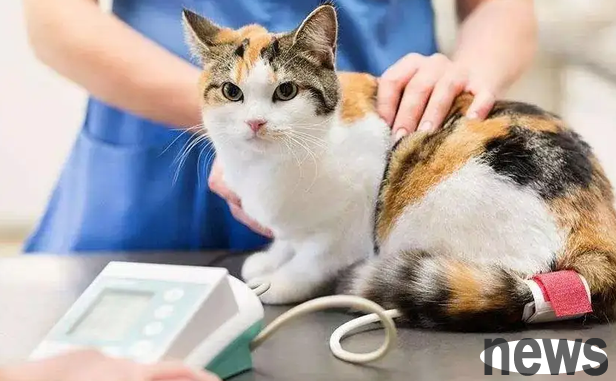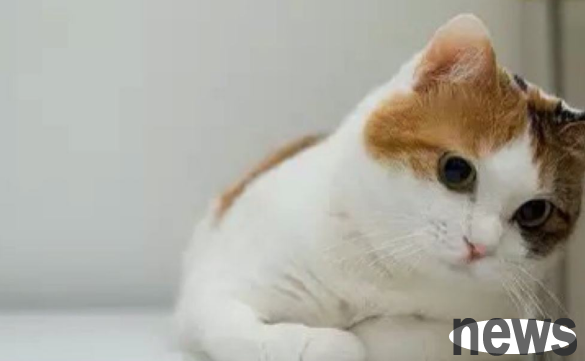B vitamins play a role in the transformation of food, energy production or interaction in cats, and are also necessary for enzymes in cats to carry out effective catalytic biochemical reactions. Deficiency of B vitamins can cause cats to become ill....
B vitamins play a role in the transformation of food, energy production or interaction in cats, and are also necessary for enzymes in cats to carry out effective catalytic biochemical reactions. Deficiency of B vitamins can cause cats to become ill. For example, cats often develop oral diseases. Deficiency of B vitamins can aggravate the degree of oral diseases. B vitamins are also a huge family of vitamins, including a variety of trace elements, and their respective functions are also different.

thiamine (vitamin B1) is closely related to the metabolism of sugars and lipids in animals, and catalyzes the activities of dehydrogenase and transketolase. The activities of these enzymes are closely related to the nervous system and immune system of animals. The skin diseases of animals are likely to be related to the insufficient supply of thiamine.
Riflavin (vitamin B2) is a precursor to 5’-riboflavin phosphate (FMN) and flavin adenine dinucleotide (FAD). Both are coenzymes of many enzymes metabolized by organisms and participate in hundreds of biological reactions. It is also a substance necessary for the metabolism of protein, sugar, and fatty acids, and energy utilization and composition. It can promote growth and development and protect the health of the eyes and skin.
Vitamin B6 is a group of nitrogen-containing compounds, mainly pyridoxine, pyridoxal, pyridoxamine, etc. It participates in more than 100 enzyme reactions and is related to the hormone regulation level, immune level, and neuromodulation ability of animals.
Nicotinic acid is a general term for niacinic acid and derivatives with biological activity of nicotinamide. It is an essential composition of coenzymes NAD and NADP. It is related to the regulatory functions of blood sugar and blood lipids. It can resist stress, cold, infection, prevent the toxicity of certain antibiotics, and eliminate postoperative abdominal distension.
Vitamin B12 is a general term for various active cobalt amides in animals. It can resist fatty liver, promote the storage of vitamin A in the liver, promote cell development and maturation and body metabolism, treat anemia, and is also related to animal nervous system development.
When B vitamins are deficient, adjust the diet composition and provide feed rich in B vitamins; supplementing artificially synthesized B vitamin preparations is also one of the solutions. In fact, beneficial intestinal bacteria can produce a variety of B vitamins during the growth and reproduction process, and these B vitamins are healthy and safe, but some intestinal diseases and the use of most antibiotics will cause an imbalance in the intestinal microbial population. Therefore, timely supplementing beneficial intestinal bacteria is also one of the ways to prevent B vitamin deficiency. It is also reported that the bioavailability of artificially synthesized or manufactured vitamins is much lower than that of natural vitamins, so the effect of vitamins produced by beneficial intestinal bacteria on health cannot be replaced by other methods for a long time.

Symptoms of B vitamin deficiency:
Vitamin B2 (riboflavin) deficiency, diseased cats manifest as ulcerative stomatitis, conjunctivitis and "poriasis"; pantothenic acid (vitamin such as) deficiency, diseased cats manifest as delayed growth or stagnation, fatty liver, and gastrointestinal disorders including ulcers; niacin (vitamin B) deficiency, diseased cats manifest as oral inflammation, accompanied by ulcers, and viscous and blood-filled saliva flows out of the mouth and exhales a foul smell; pyridoxine (vitamin B6) deficiency, diseased cats manifest as weight loss, anemia, and may also have secondary urinary tract stones; folic acid (vitamin B1) deficiency, diseased cats manifest as anemia or leukocytopenia.
Prevention and control:
Provide fresh meat and high-quality full-price feed for cats. Avoiding single food for a long time can effectively prevent vitamin B deficiency. Timely taking oral or injecting vitamin B preparations to sick cats also have good results. When vitamin B1 is deficient, you can take B1 tablets orally, 10 mg three times a day; when vitamin B2 is deficient, riboflavin orally, 3 times a day, 2 mg two times a day; when vitamin B5 is deficient, niacin is given, 0.25 grams is taken per day; when vitamin B6 is deficient, take B6 tablets orally; when vitamin B12 is deficient, take B12 powder (powder) can all achieve good results.